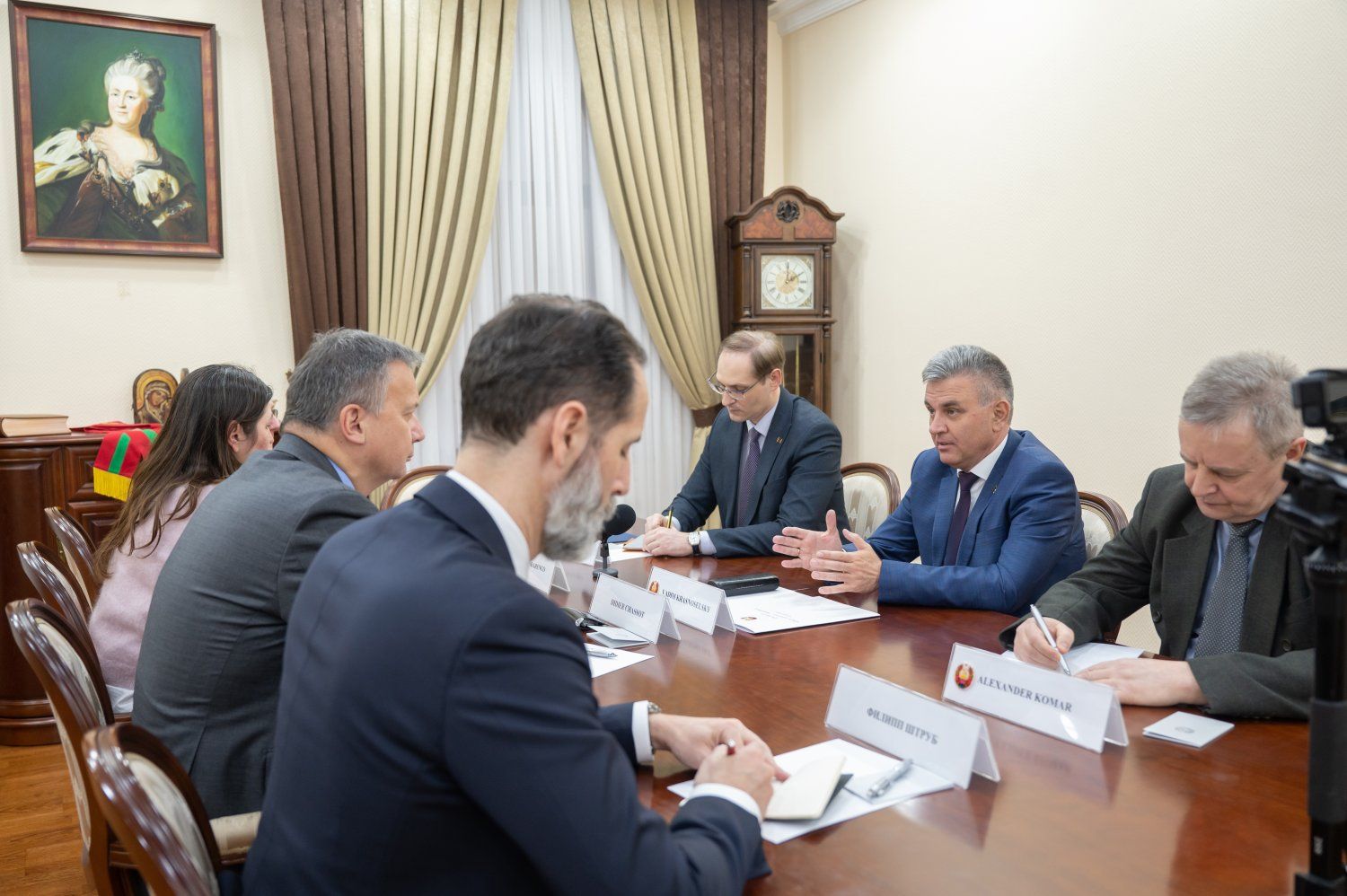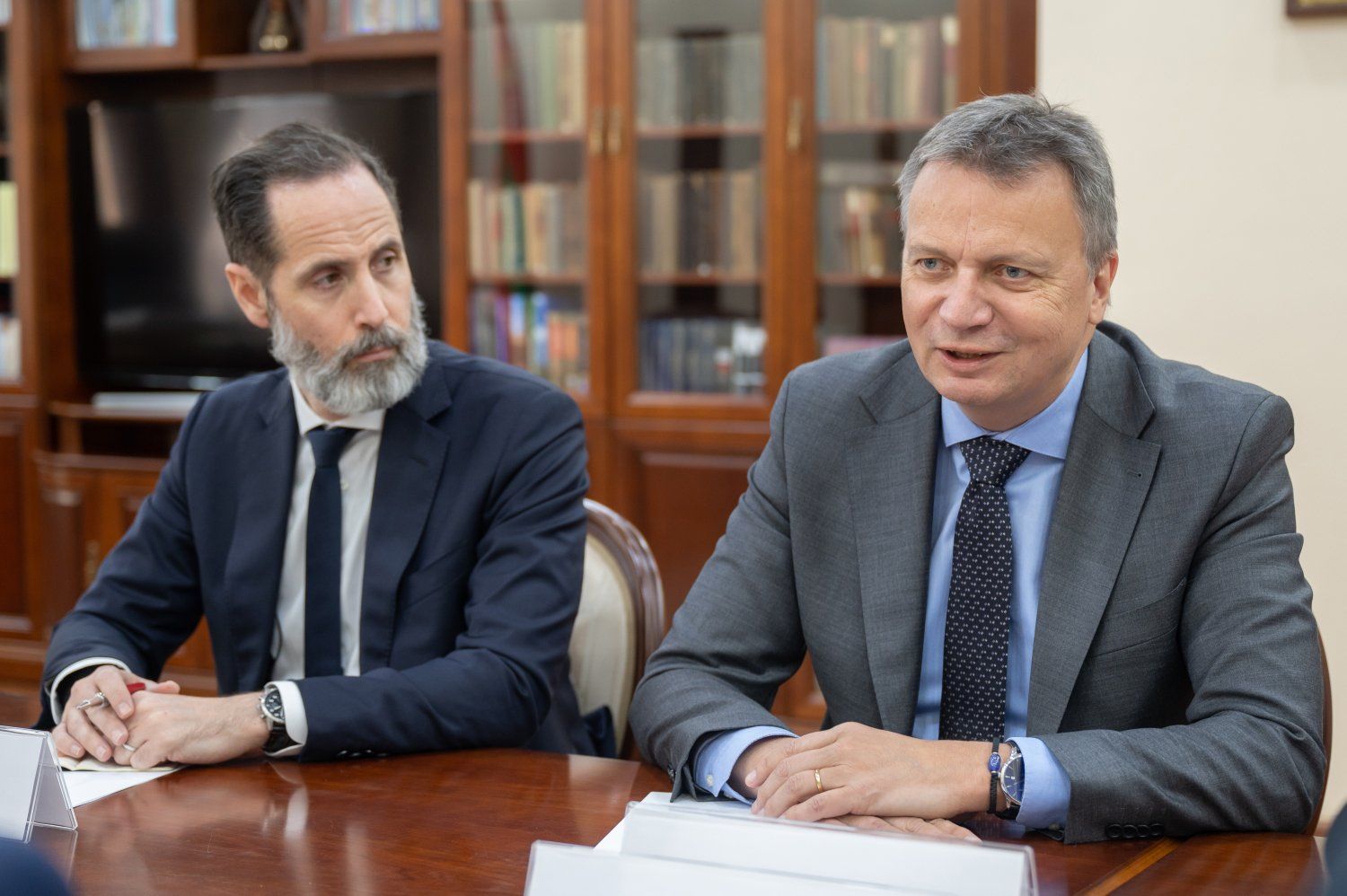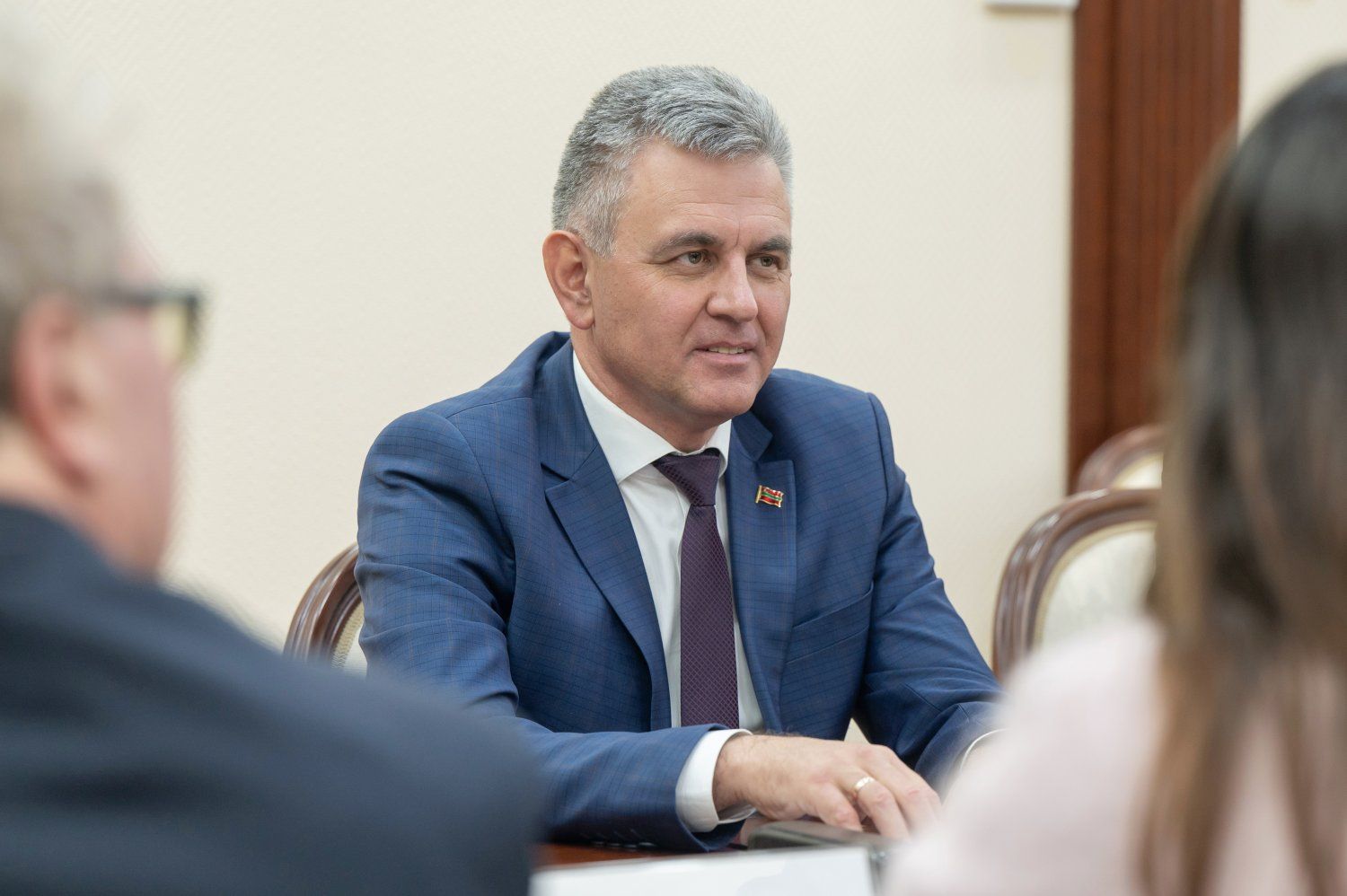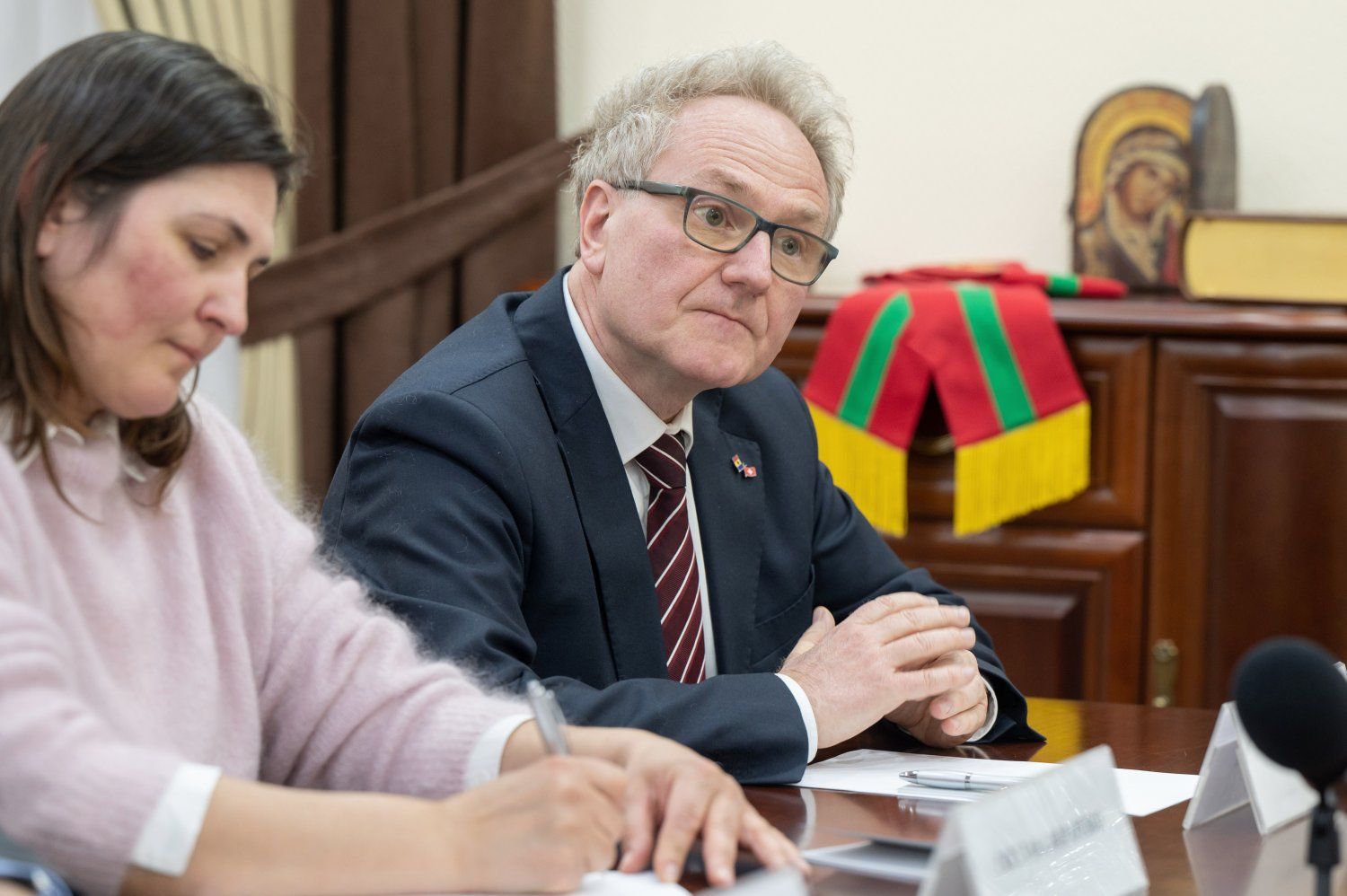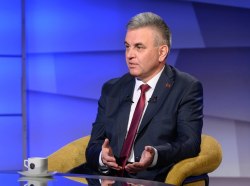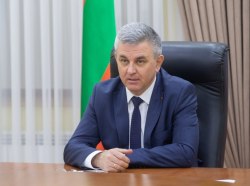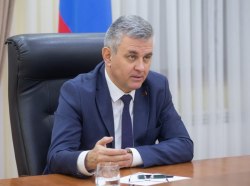Meeting of the PMR President Vadim Krasnoselsky and the Swiss delegation, headed by Deputy Director General of the Swiss Agency for Development and Cooperation, Head of the Department for Europe and the Middle East Didier Chassot, took place at the presidential executive office. The group included Deputy Ambassador of Switzerland to Ukraine and Moldova Philippe Strub and Director of the Swiss Cooperation Office Guido Beltrani. The PMR Foreign Minister Vitaly Ignatiev joined the discussion from the Pridnestrovian side.
Welcoming the guests, Vadim Krasnoselsky emphasized that their visit is especially interesting due to the fact that the country represented by the delegation will chair the OSCE next year. According to the PMR President, it is necessary to have information, and Switzerland has the opportunity to obtain the necessary information during the current year, including within the framework of today's meeting in order to effectively perform the relevant functions. Vadim Krasnoselsky said that it is information that determines decisions. The situation with the negotiation process is indicative in this context. The lack of dialogue between Pridnestrovie and Moldova has led to the current situation and the accumulation of various problems. The PMR President emphasized that the Moldovan side artificially stagnate the work of the "Permanent Conference..." format and has been keeping it in a motionless state for several years. Vadim Krasnoselsky recalled that "5+2" is a generally recognized and proven effective negotiating platform, the resumption of which will give impetus to contacts at various levels. The President expressed hope for active and productive mediation in this process by Switzerland. He emphasized that the preservation of peace is of primary importance for Pridnestrovie and called for discussing all issues exclusively at the negotiating table.
Didier Chassot assured that he and his country are in favor of a peaceful resolution of any conflicts. The head of the delegation spoke about Switzerland's priorities in terms of cooperation. He identified three main areas: economics, healthcare and management. He spoke about the projects being implemented.

